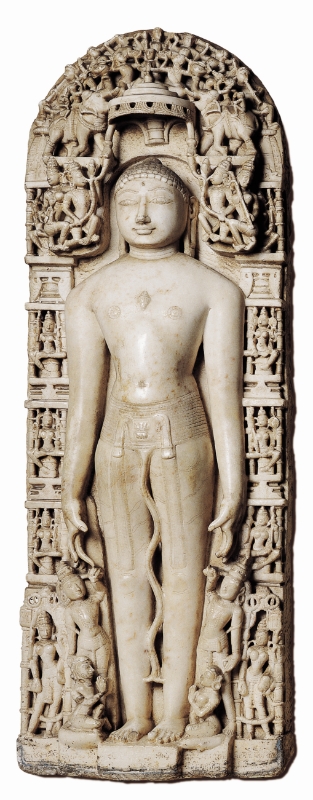Shantinatha
Description
This image of the 16th Tirthankara, Shantinatha, was a part of a magnificent marble temple of the 12th Century CE. The intricately carved sculpture is an early image with an elaborate prabhavali (halo) inset with many figures. Here, Shantinatha stands in meditation, calm and composed, in the Kayotsarga (meditative) pose. A donor couple sits in prayerful supplication on either side of his feet. The chauri bearers, standing behind the donors, wave their chauris, under the long hands of the Jina.
There are three Vidyadevis, the goddesses of knowledge, on each side of Shantinatha who has attained supreme knowledge. Their presence on the torana stambha is a cliché often used in the Jaina images by Rajasthani artists of the 11th and 12th Centuries. Jain devotees preferred white marble for the images of their pantheon: It suits the idea of purity of the Jina, whose soul is absolutely purified.
The inscription on the pedestal reads: “In Vikram Samvat 1195 (1138 CE) an image of Shantinatha Jina was made by Gargasuri of Shri Jineswaracharya Sangha of Shri Sarvalagaccha at Shri Sarasthana, for his own merit.
Collection
Jain Art
Object Type
Sculpture
Material
Marble
Schools/Culture/Period
--
Technique
--
Date
Dated Samvat 1195 = 1138 CE
Location
Veravan, South of Thar Parkar
Dimension
146 x 50.7 x 19 cm
